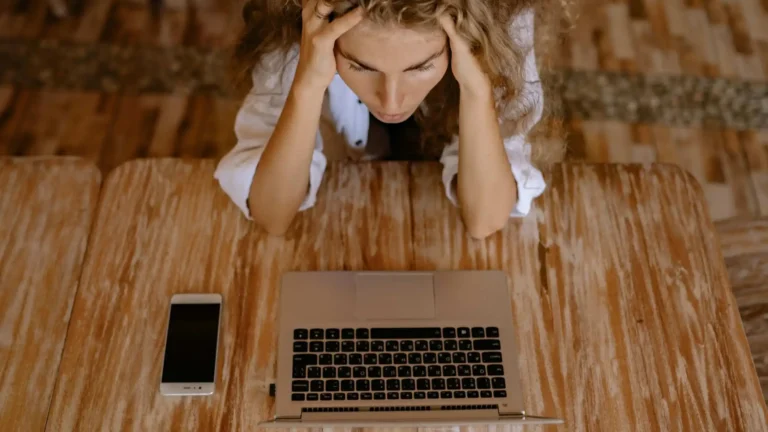May 4th, 2011
By Annoyed Librarian at The Library Journal
Find article here.
I can’t seem to get away from the issue of Internet pornography in the library, mainly because so many librarians are so recalcitrant about the issue. So just one last word on the problem of library porn for librarians.
Please don’t trot out the old chestnut that we can’t define porn, so we don’t know what it is. We know what it is, including the people who view it. That’s why people caught viewing porn in libraries by reporters don’t want to talk. They’re ashamed, not of surfing for porn, but of being called about it in public. And it makes for great news stories.
Usually the issue is considered in terms of the problem of library porn for patrons. That’s important of course, and considering the needs of patrons should certainly be a central concern, at least after considering the needs of librarians.
Some adults don’t want to see Internet pornography, and public libraries are the only place that those who disapprove of pornography have to see any. Bookstores and convenience stores and other places that sell pornographic magazines usually hide the covers. I see a lot of people working on laptops in coffee shops, and I’ve never seen anyone surfing for porn.
There’s no other public space where visual pornography is acceptable. Even sex stores don’t have videos playing in the public areas as far as I can tell.
Let’s just ignore these prudes for a moment, these busybodies who expect public libraries to abide by the same conventions as every other public space in the country. They should know better.
Then there’s the argument over porn in children’s areas of the library. This is the only substantive area of disagreement, and the one where the ALA OIF ideology is the most outside the mainstream. It’s illegal to sell pornographic magazines to children, yet the ALA insists that it’s wrong to filter pornography in the children’s area of libraries. The vast majority of people up to and including the Supreme Court think otherwise.
Is porn really a problem for children? This depends on the porn and the child, I suppose. Pornographic videos aren’t really my cuppa, since I much prefer print to video for erotic content, but I’ve seen a few here and there, mostly when preparing for blog posts about the issue.
It’s clear there’s a lot of sick stuff out there, and a lot of sick people apparently watching it. To think that some men (and it’s always men) get enjoyment out of some of the depictions and treatment of women in any number of videos makes me wonder about the sad state of their soul, though it doesn’t make me wonder why they’re watching porn instead of having relationships with real women.
On the other hand, some of it is as tastefully done as possible. Not much, but some.
Would any of it harm children? I won’t link to examples, but for those of you with children, would you want your child of 5 or 7 or so seeing a video of a man choking a woman while ejaculating on her face? Or of young women who seem drug-impaired being gang-raped? Or of young men being gang-raped for that matter.
But let’s say you are one of those librarians who think it’s okay for young children to view gang-rape videos because those videos are “Constitutionally protected speech.” For the sake of argument, let’s say you’re correct, and that this would be just as healthy for children as watching Scooby Doo or whatever it is the kids watch these days.
There’s still a problem with library porn, even if we concede the arguments that public libraries should abide by the convention of every other public space in the country and that children shouldn’t be exposed to Internet porn.
The problem is for the librarians and the library. The problem with library porn is that librarians sound like fools defending it, and sounding like fools is never good for librarians.
They especially sound like fools when they start going on about how the Constitution protects people viewing Internet porn in public libraries. This isn’t a settled issue, but given the other rulings by the Supreme Court, it doesn’t seem likely that this would ever be considered a right.
They also sound like fools when they defend public library porn because of an alleged dedication to access to information. Men who sit in front of library computers viewing Internet porn aren’t “accessing information,” unless we want to make “accessing information” a new euphemism for getting sexually aroused and possibly doing something about that arousal.
I could definitely see this getting traction with librarians, like those tee shirts that say, “Librarians do it in the stacks,” but in general I think it would be detrimental to our cause.
Finally, they sound like fools because no one agrees with them and they have no good arguments for their position. There’s no Constitutional right to view porn. Communities have standards and libraries as public institutions supported by those communities should abide by those standards just like every other public place. This is so commonsensical that only a librarian could think otherwise.
The problem about the whole situation isn’t that the news media like to hop on juicy library porn stories, as if America’s public libraries were full of perverts standing in line to satisfy their porn addictions @ the library. We know that’s not the case.
The problem also isn’t when the news media give such exposure to a relatively limited problem when libraries are in such dire straits.
The problem is with librarians who keep feeding reporters the same laughable lines and making libraries and librarians look ridiculous in times when libraries are in such bad shape. Keep it up and see where it gets you.





